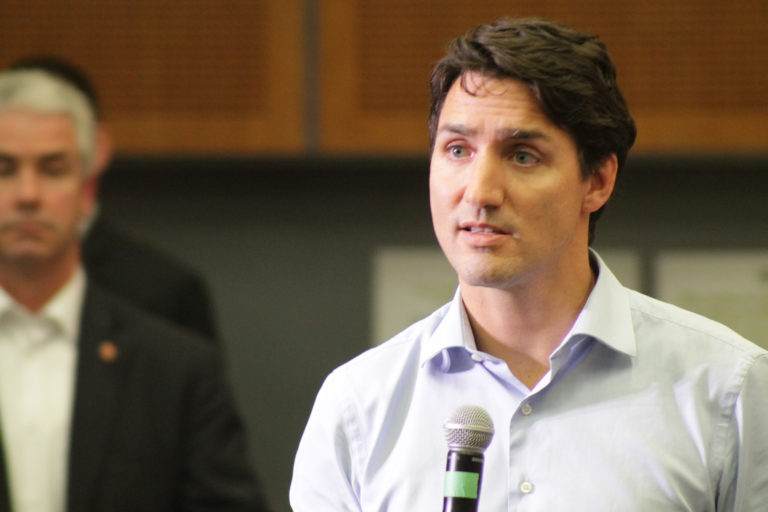
More than three million people are out of work thanks to COVID-19, an “unprecedented” drop in employment levels, according to the latest job figures from Statistics Canada.
More than one million people lost their jobs in March due to the pandemic, and on Friday Stats Canada revealed that nearly two million lost their jobs in April. The unemployment rate now sits at 17.8 per cent, when adjusted to include those who were unemployed for non-COVID related reasons.
Stats Canada estimates that 1.1 million people wanted to work, but did not search for a job because of ongoing business closures.
With that in mind, Prime Minister Justin Trudeau announced plans to extend the Canada Emergency Wage Subsidy beyond its original June 6 end date. The subsidy provides eligible businesses with enough funds to cover 75 per cent of employee wages
“No matter where you work or who you are, these are tough times,” Trudeau said during a media update on Friday. “But, with the right plan, we will get through this and come back stronger than ever.”
Trudeau also announced plans to create a New Industry Strategy Council, which will look at subsidies for specific sectors and industries, along with a $500-million funding boost for arts, culture and amateur sports.
He added that residents could still apply for the Canada Emergency Response Benefit, although he expected most people would rather get back to work.
“Canadians want to work, so we’re going to help them return to work,” he said.
Trudeau promised more details about the wage subsidy next week. As of Friday, employers had applied for subsidies covering the wages of roughly two million workers.
The Prince Albert Chamber of Commerce welcomed the federal government’s decision, but said it won’t be enough without support from local consumers.
Chamber CEO Elise Hildebrandt said business owners are concerned residents won’t shop local, even once the economy re-opens. If that happens, government subsidies aren’t going to save them.
“We can put in the wage subsidy, we can put in the rent support and all the rest of it, but if we don’t support those stores that are local, what difference does that make? That money isn’t staying in our community,” she explained.
Hildebrandt added that she’d like to see the federal government move quicker in providing funds for local businesses, but acknowledged they were doing the best they could.
“For a government, they are moving quickly,” she said. “But, it doesn’t roll out that fast.”
The Canadian Federation of Independent Business also welcomed the federal government’s decision.
CFIB president Dan Kelly said most businesses expected to make very little in the first few weeks after being allowed to reopen. He believes the wage subsidy will help them retain staff during those first few weeks.
While all Canadian provinces have been hit hard by COVID-19, Saskatchewan has fared better than most. The province saw its employment rate drop by 12.7 per cent from February to April, the lowest out of any province in Canada.
Quebec saw the highest drop in employment during that period, with a decrease of 18.7 per cent, followed by Nova Scotia (16 per cent) and Newfoundland and Labrador (15.7 per cent).
